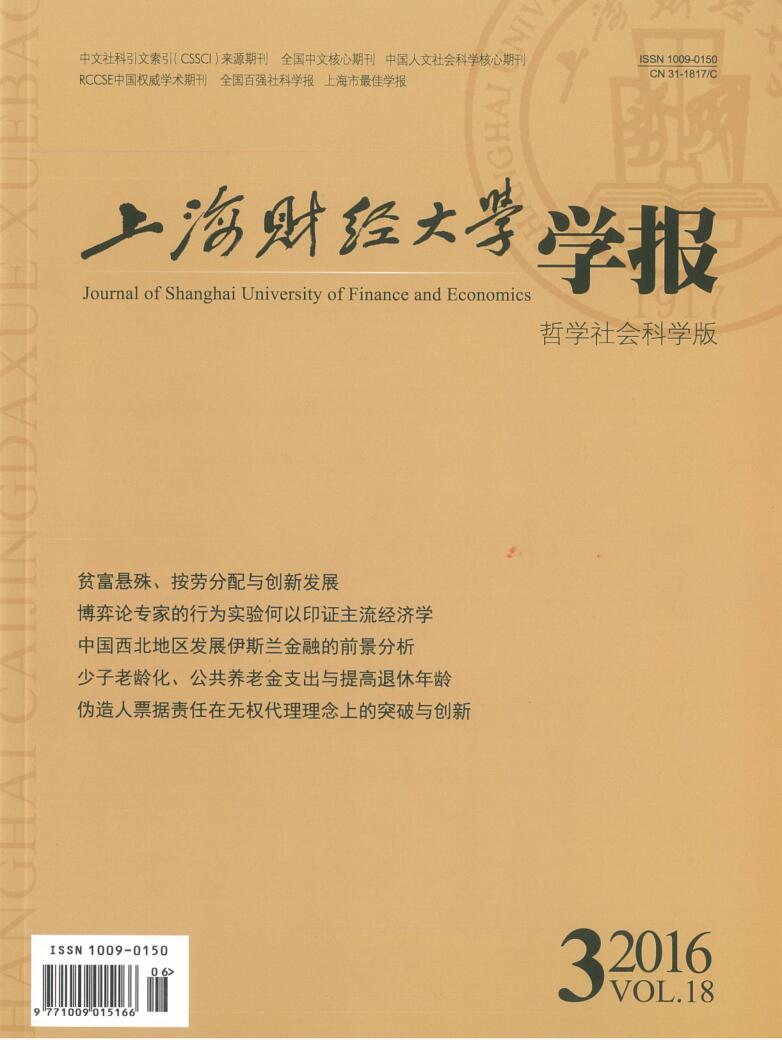产品伤害危机发生后,很多企业积极开展社会责任活动来修复已经受损的企业形象,然而选择不同的企业社会责任(CSR)策略可能产生完全不同的效果。针对这一问题,文章从利益相关者理论工具性视角和规范性视角的矛盾出发,引入认知失调理论和归因理论的观点,构建了一个综合性理论模型以使这两种视角的矛盾观点达成和解。实验结果表明,在中国当前有限信任和信息不对称环境中,消费者怀疑在企业社会责任感知和购买意向改变中起到中介作用;并且商业型CSR和慈善型CSR的交互作用可以通过影响消费者怀疑来影响消费者购买意向的改变;只有当商业型CSR较高时,慈善型CSR才会起到积极作用;否则投入较多的慈善型CSR更容易引发消费者的怀疑。因此,实践中企业应当在资源充足的情况下选择双高型CSR策略;在资源不足的情况下选择商业型CSR高、慈善型CSR低的策略。研究明确了消费者对CSR活动进行解读与反馈的心理机制,从而帮助企业走出产品伤害危机后CSR修复策略的实践困境。
产品伤害危机后企业社会责任的选择:商业型还是慈善型
摘要
参考文献
1 朱翊敏. 慈善捐赠额度与产品类型对消费者响应的影响[J]. 经济管理,2013,(3).
2 Antonetti P., Maklan S. An Extended Model of Moral Outrage at Corporate Social Irresponsibility[J]. Journal of Business Ethics, 2014: 1-16.
3 Baron R. M., Kenny D. A. The Moderator-mediator Variable Distinction in Social Psychological Research: Conceptual, Strategic, and Statistical Considerations [J]. Journal of Personality and Social Psychology, 1986, 51(6): 1173-1182.
4 Barone M. J., Norman A. T., Miyazaki A. D. Consumer Response to Retailer Use of Cause-related Marketing: Is more Fit better?[J]. Journal of Retailing, 2007, 83(4): 437-445.
5 Basu K., Palazzo G. Corporate Social Responsibility: A Process Model of Sensemaking[J]. Academy of Management Review, 2008, 33(1):122-136.
6 Bhattacharya C. B., Korschun D. Stakeholder Marketing: Beyond the four Ps and the Customer[J]. Journal of Public Policy & Marketing, 2008, 27(1): 113-116.
7 Cleeren K., Van Heerde H. J., Dekimpe M. G. Rising from the Ashes: How Brands and Categories can Overcome Product-harm Crises[J]. Journal of Marketing, 2013, 77(2): 58-77.
8 Cording M., Harrison J. S., Hoskisson R. E., et al. Walking the Talk: A Multistakeholder Exploration of Organizational Authenticity, Employee Productivity, and Post-Merger Performance[J]. The Academy of Management Perspectives, 2014, 28(1): 38-56.
9 DeCarlo T. E. The Effects of Sales Message and Suspicion of Ulterior Motives on Salesperson Evaluation[J]. Journal of Consumer Psychology, 2005, 15(3): 238-249.
10 Edwards J. R., Lambert L.S. Methods for Integrating Moderation and Mediation: A General Analytical Framework Using Moderated Path Analysis[J]. Psychological Methods, 2007, 12(3):1-22.
11 Ellen P. S., Webb D. J., Mohr L. A. Building Corporate Associations: Consumer Attributions for Corporate Socially Responsible Programs[J]. Journal of the Academy of Marketing Science, 2006, 34(2): 147-157.
12 Freeman R. Strategic Management: A Stakeholder Approach[M].Boston: Pitman Publishing Inc.,1984.
13 Gillespie E. A., Hybnerova K., Esmark C., et al. A Tangled Web: Views of Deception from the Customer's Perspective[J]. Business Ethics: A European Review, 2016, 25(2):198-216.
14 Godfrey P. C., Merrill C. B., Hansen J. M. The Relationship between Corporate Social Responsibility and Shareholder Value: An Empirical Test of the Risk Management Hypothesis[J]. Strategic Management Journal, 2009, 30(4): 425-445.
15 Highhouse S., Brooks M. E., Gregarus G., et al. An Organizational Impression Management Perspective on the Formation of Corporate Reputations[J]. Journal of Management, 2009, 35(6):1481-1493.
16 Homburg C., Stierl M., Bornemann T. Corporate Social Responsibility in Business-to-business Markets: How Organizational Customers Account for Supplier Corporate Social Responsibility Engagement[J]. Journal of Marketing, 2013, 77(6): 54-72.
17 Lankoski L. Differential Economic Impacts of Corporate Responsibility Issues[J]. Business & Society, 2009, 48 (2): 206-224.
18 Lichtenstein D. R., Drumwright M. E., Braig B. M. The Effect of Corporate Social Responsibility on Customer Donations to Corporate-supported Nonprofits[J]. Journal of Marketing, 2004, 68(4):16-32.
19 Madsen P. M., Rodgers Z. J. Looking good by doing good: The Antecedents and Consequences of Stakeholder Attention to Corporate Disaster Relief[J]. Strategic Management Journal, 2015, 36(5):776-794.
20 Marín L., Cuestas P. J., Román S. Determinants of Consumer Attributions of Corporate Social Responsibility[J]. Journal of Business Ethics, 2015:1-14.
21 Meeks M., Chen R. J. C. Can Walmart Integrate Values with Value? From Sustainability to Sustainable Business[J]. Journal of Sustainable Development, 2011, 4(5): 62-66.
22 Parguel B., Benoît-Moreau F., Larceneux F. How Sustainability Ratings might Deter "Greenwashing": A Closer Look at Ethical Corporate Communication[J]. Journal of Business Ethics, 2011, 102(1): 15-28.
23 Sandin P. Approaches to Ethics for Corporate Crisis Management[J]. Journal of Business Ethics, 2009, 87(1): 109-116.
24 Story J., Neves P. When Corporate Social Responsibility (CSR) Increases Performance: Exploring the Role of Intrinsic and Extrinsic CSR Attribution[J]. Business Ethics A European Review, 2015, 24(2):111-124.
25 Tang Z., Hull C. E., Rothenberg S. How Corporate Social Responsibility Engagement Strategy Moderates the CSR-Financial Performance Relationship[J]. Journal of Management Studies, 2012, 49(7):1274-1303.
26 Tsarenko Y., Rooslani Tojib D. A Transactional model of Forgiveness in the Service Failure Context:A Customer-driven Approach[J]. Journal of Services Marketing, 2011, 25(5): 381-392.
27 Vaara E., Junni P., Sarala R. M., et al. Attributional Tendencies in Cultural Explanations of M&A Performance[J]. Strategic Management Journal, 2014, 35(9): 1302-1317.
28 Wagner T., Lutz R. J., Weitz B. A. Corporate Hypocrisy: Overcoming the Threat of Inconsistent Corporate Social Responsibility Perceptions[J]. Journal of Marketing, 2009, 73(6): 77-91.
29 Wales W. J., Patel P. C., Lumpkin G. T. In Pursuit of Greatness: CEO Narcissism, Entrepreneurial Orientation, and Firm Performance Variance[J]. Journal of Management Studies, 2013, 50(6): 1041-1069.
30 White K., Peloza J. Self-benefit Versus other-benefit Marketing Appeals: Their Effectiveness in Generating Charitable Support[J]. Journal of Marketing, 2009, 73(4): 109-124.
31 Yoon Y., Gürhan-Canli Z., Schwarz N. The Effect of Corporate Social Responsibility (CSR)Activities on Companies with bad Reputations[J]. Journal of Consumer Psychology, 2006, 16(4): 377-390.
引用本文
王汉瑛, 田虹. 产品伤害危机后企业社会责任的选择:商业型还是慈善型[J]. 上海财经大学学报, 2016, 18(3): 62–73.
导出参考文献,格式为:





 7086
7086  7186
7186

